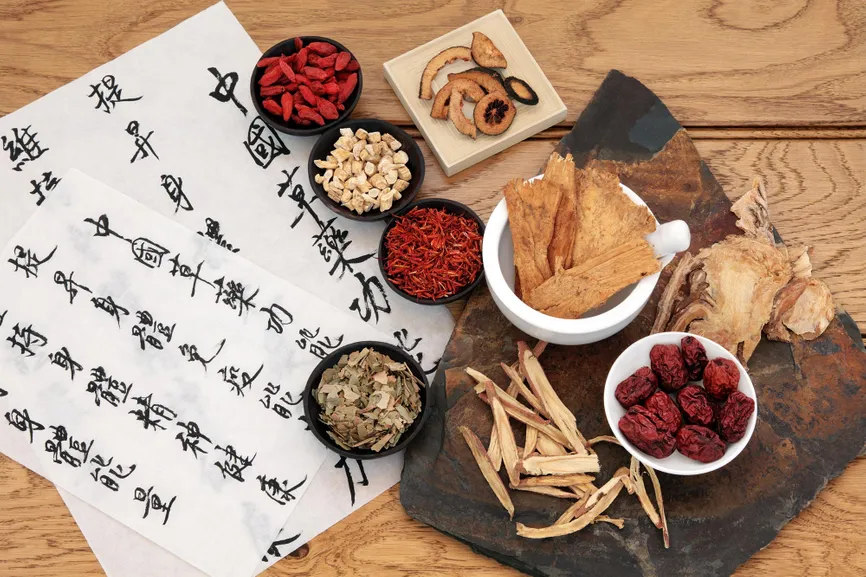
Traditional Chinese medicine (TCM) has been used since the 14th century BC, and now it is a thriving field of research. Despite this, TCM is generally dismissed as pseudoscience and is regarded with significant skepticism in the west. This often occurs because little research has been done to demonstrate the effectiveness and safety of TCMs via randomized controlled clinical trials (RCTs).
One such TCM is Yupingfeng (YPF, 玉屏风)—a patented formula available as compounded granules that includes Astragali radix (Huangqi), Atractylodis macrocephalae rhizoma (Baizhu), and Saposhnikoviae radix (Fangfeng)—which is often used in China to treat recurrent respiratory tract infections (RRTIs) in children. Although YPF is known to enhance immune function, there is little proof that it is effective in treating pediatric RRTIs.
Based on the results of a randomized, double-blind, clinical trial, Yupingfeng granules are not inferior to allopathic pidotimod as a treatment for pediatric recurrent respiratory tract infections. Credit: Pediatric Investigation
To address this gap, a large group of researchers from China conducted a multicenter RCT to evaluate the safety and efficacy of YPF in children with RRTIs. The results from this double-blind RCT were recently published in the journal Pediatric Investigation. Professor Kunling Shen, who spearheaded this study, explains, “We wanted to perform a rigorous investigation to understand the therapeutic benefits of YPF. This is why we conducted a large-scale RCT, the gold standard of clinical studies, and enrolled patients not from a single center but from multiple hospitals.”
351 children with RRTIs (aged 2 to 6 years) were included in this study and were assigned to one of three groups. While the first group received YPF, the second group received pidotimod, an allopathic conventional drug that has been used to treat RRTI since the 1990s. The third group was only given a placebo.
To eliminate as much bias as possible, neither the patients nor their physicians were made aware of the treatment. The researchers looked at the percentage of individuals whose infection frequency dropped to typical levels after 8 weeks of treatment (i.e., RRTIs returning to normal standard). They also looked at each group’s safety and RRTI event reduction.
During 52 weeks of follow-up after the treatment, the proportion of RRTIs returning to normal standard was only 39% in the placebo group. However, it was much better at 73% and 67% in the YPF and pidotimod groups, respectively. These two groups also showed a substantially greater reduction in RRTI events during the follow-up.
Moreover, the safety profile was similar across all three groups. Together, the findings indicated that YPF was not inferior to pidotimod in treating RRTIs and did not have any safety issues either. YPF also costs less than pidotimod and was thus a more economically feasible option.
“The strength of our study lies in its rigorous design. It is the largest multicenter study to prove that YPF, a TCM, can be as effective as an allopathic drug in treating RRTIs. It is a major step forward in sharing the benefits of TCM with the world,” comments Professor Rong Ma, who led this study along with Professor Shen.
Indeed, this study has cemented the value of YPF in treating RRTIs, which are common among children in China and in other parts of the world. It shows that TCMs can be as effective and safe as allopathic drugs, even though we may not fully understand the biological mechanisms underlying their effects. Dr. Julian L. Allen, an Associate Editor at Pediatric Investigation, wrote an editorial and said “Just because we don’t understand how a drug works, it doesn’t mean that it doesn’t work. This well-designed RCT could be an important step in addressing western skepticism surrounding TCM and reaping the benefits of its holistic effects.”
Indeed, the adoption of YPF in RRTI treatment could benefit thousands of children worldwide, especially those from lower socioeconomic backgrounds. YPF could be one among a line of TCMs gaining worldwide recognition for their treatment benefits, crossing out the “pseudo” while focusing on the “science.”
Reference: “Safety and efficacy of Yupingfeng granules in children with recurrent respiratory tract infection: A randomized clinical trial” by Baoping Xu, Xinmin Li, Siyuan Hu, Yixiao Bao, Fengmei Chen, Zhimin Chen, Yonggang Du, Enmei Liu, Yufeng Liu, Qinghui Mou, Baoling Su, Bo Wang, Jianwen Xu, Guiping Xu, Qiaozhi Yang, Liwei Gao, Xiaohui Liu, Lei Li, Rong Ma and Kunling Shen, 2 June 2022, Pediatric Investigation.
From:https://scitechdaily.com/study-finds-traditional-chinese-medicine-is-as-effective-as-drugs-in-treating-a-certain-type-of-infection/